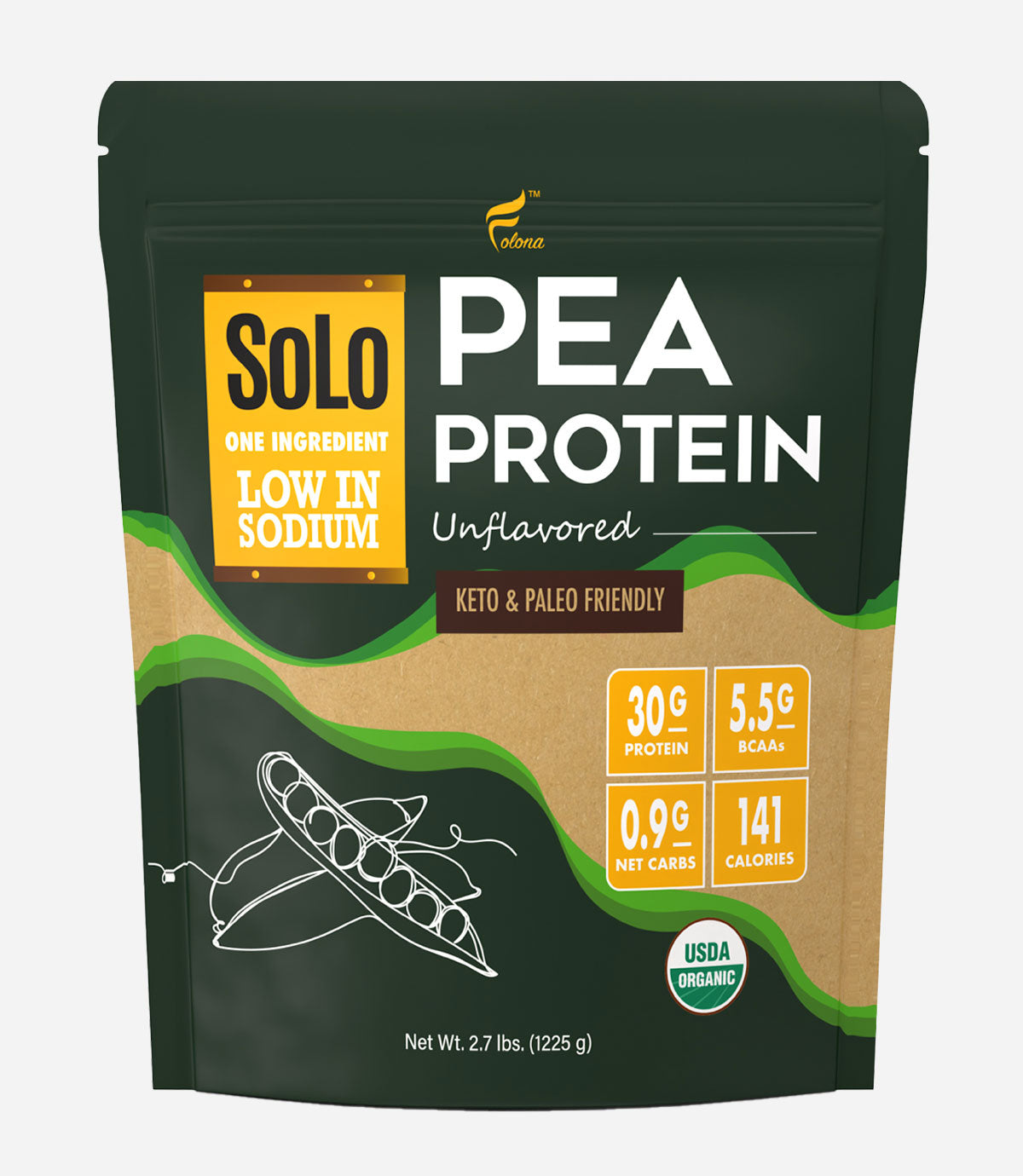
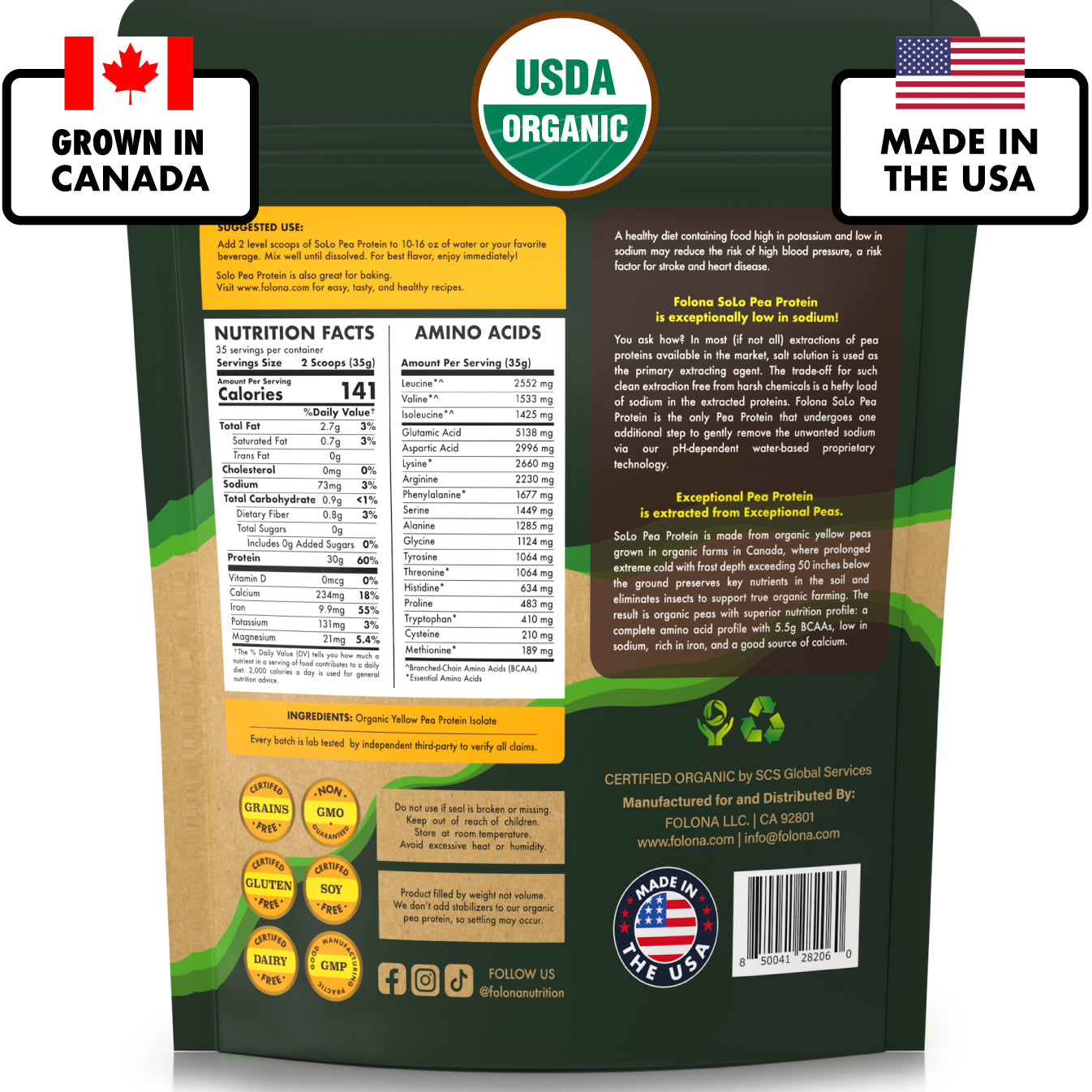
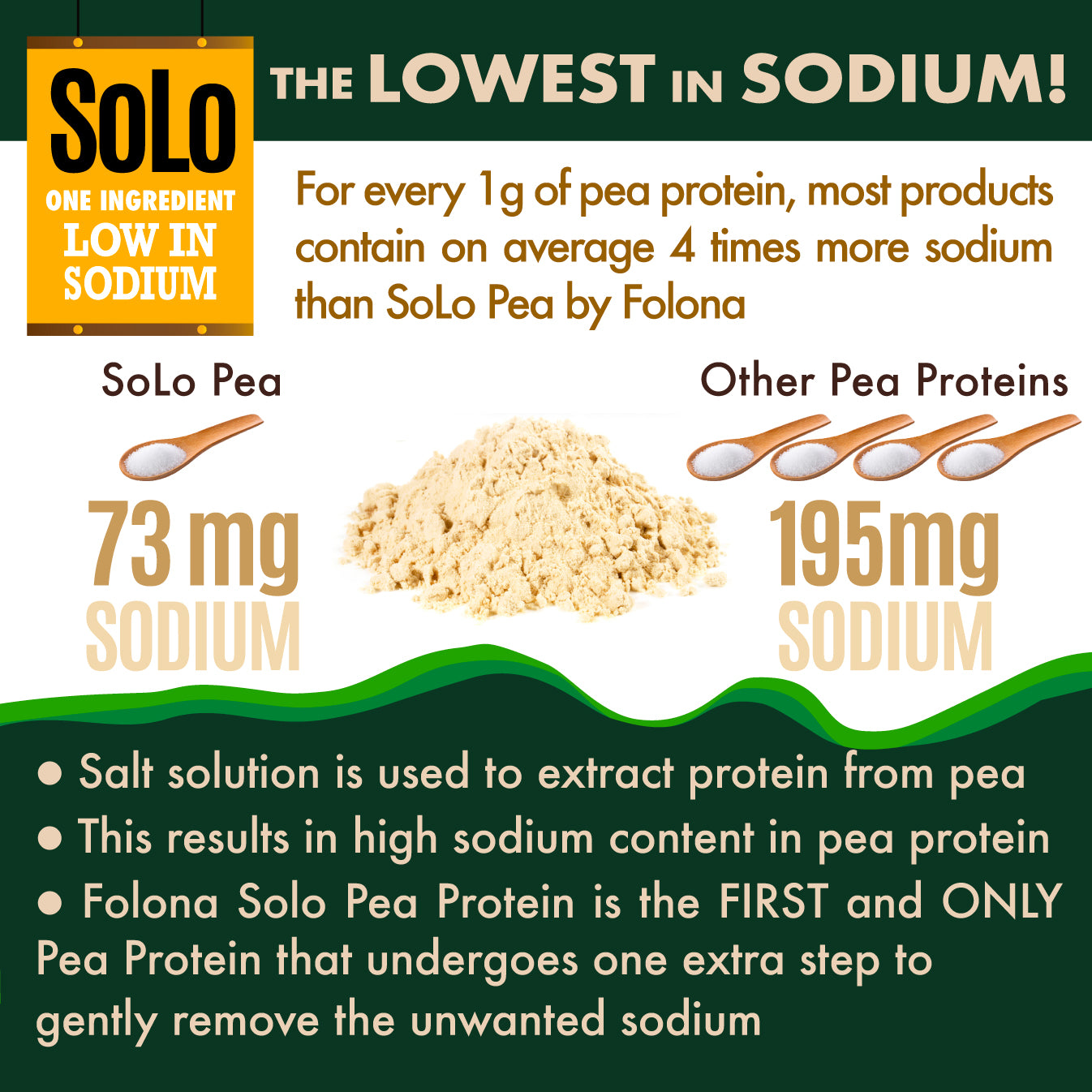
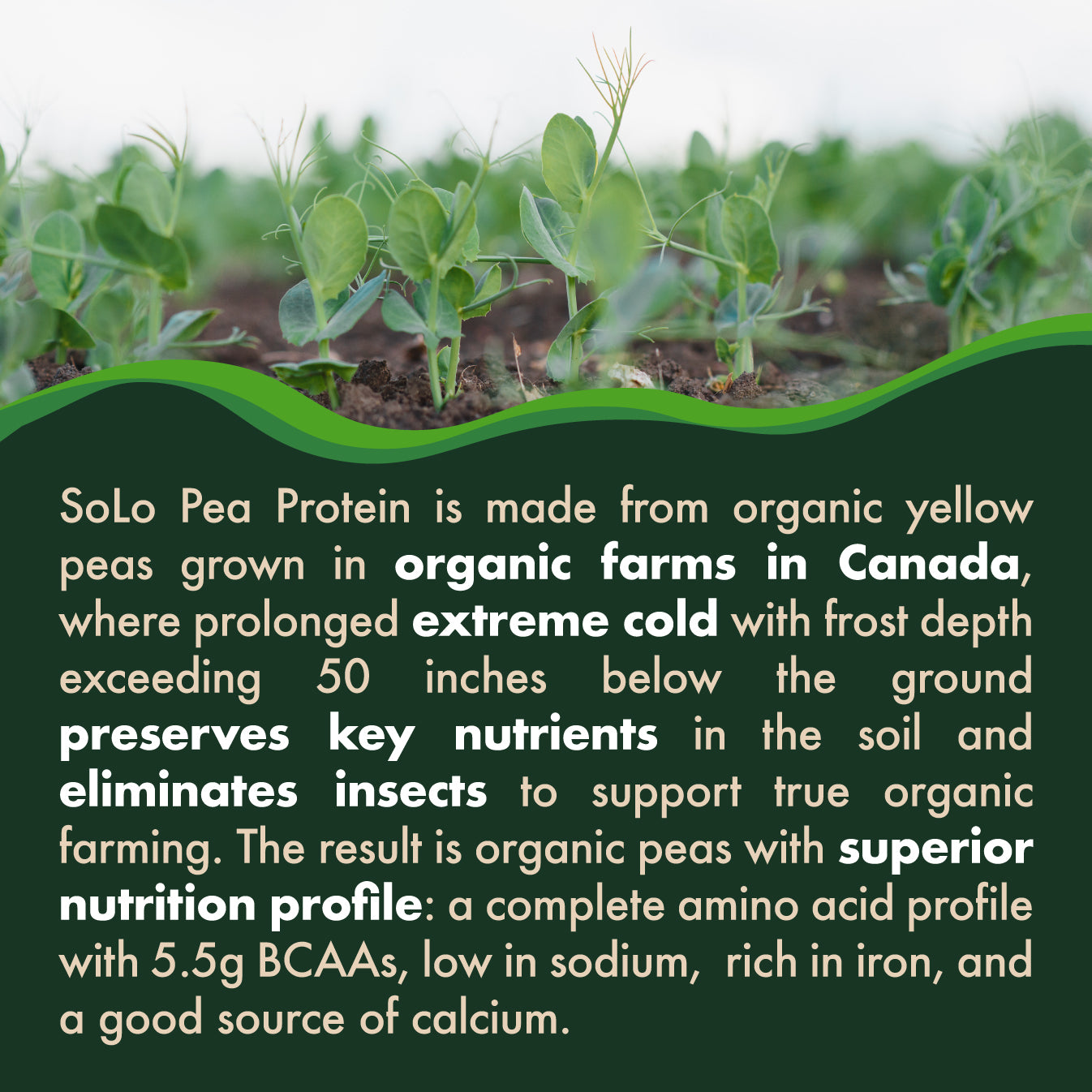
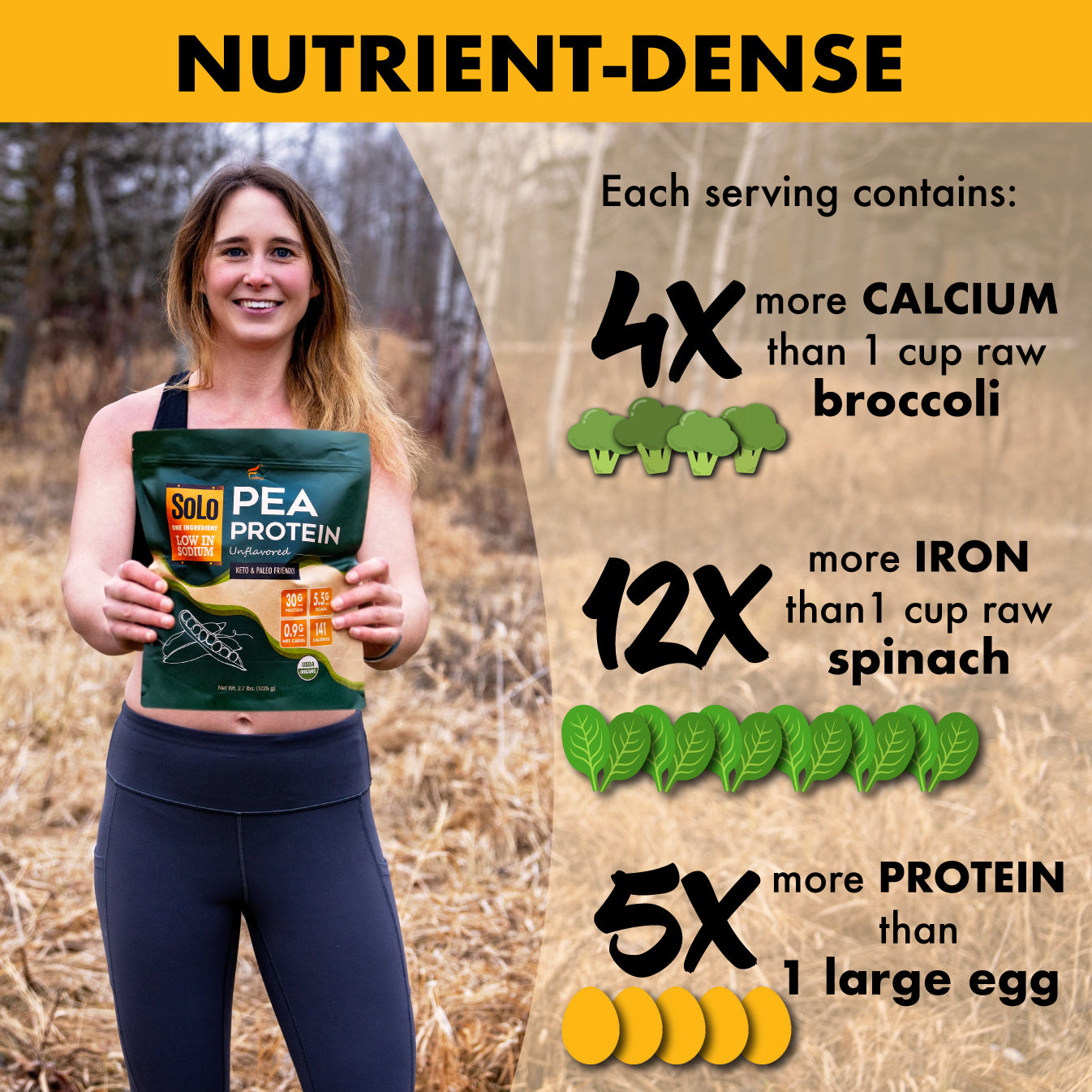
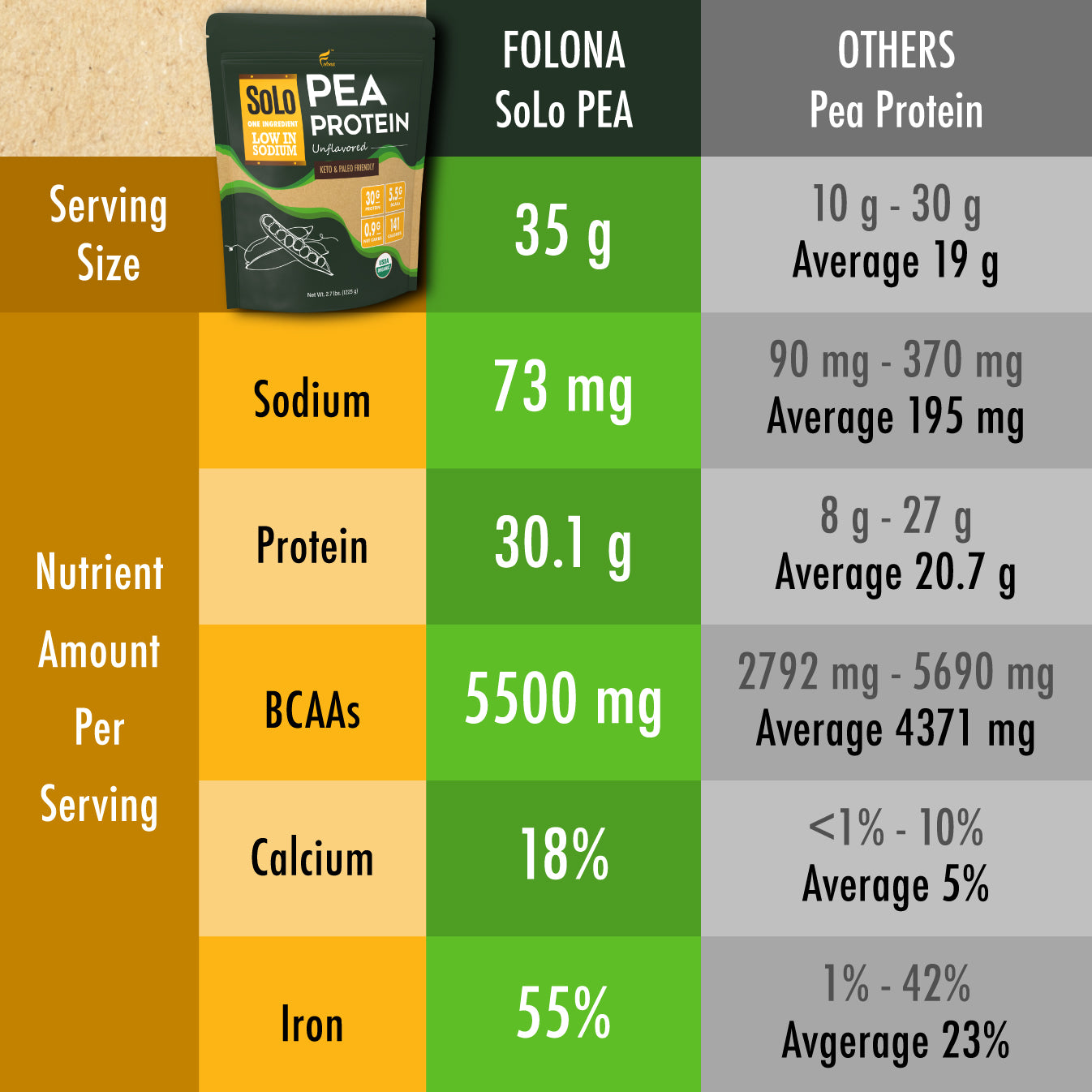
Lean Muscle Mass
Workout Recovery
Brain function
Athletic Performance
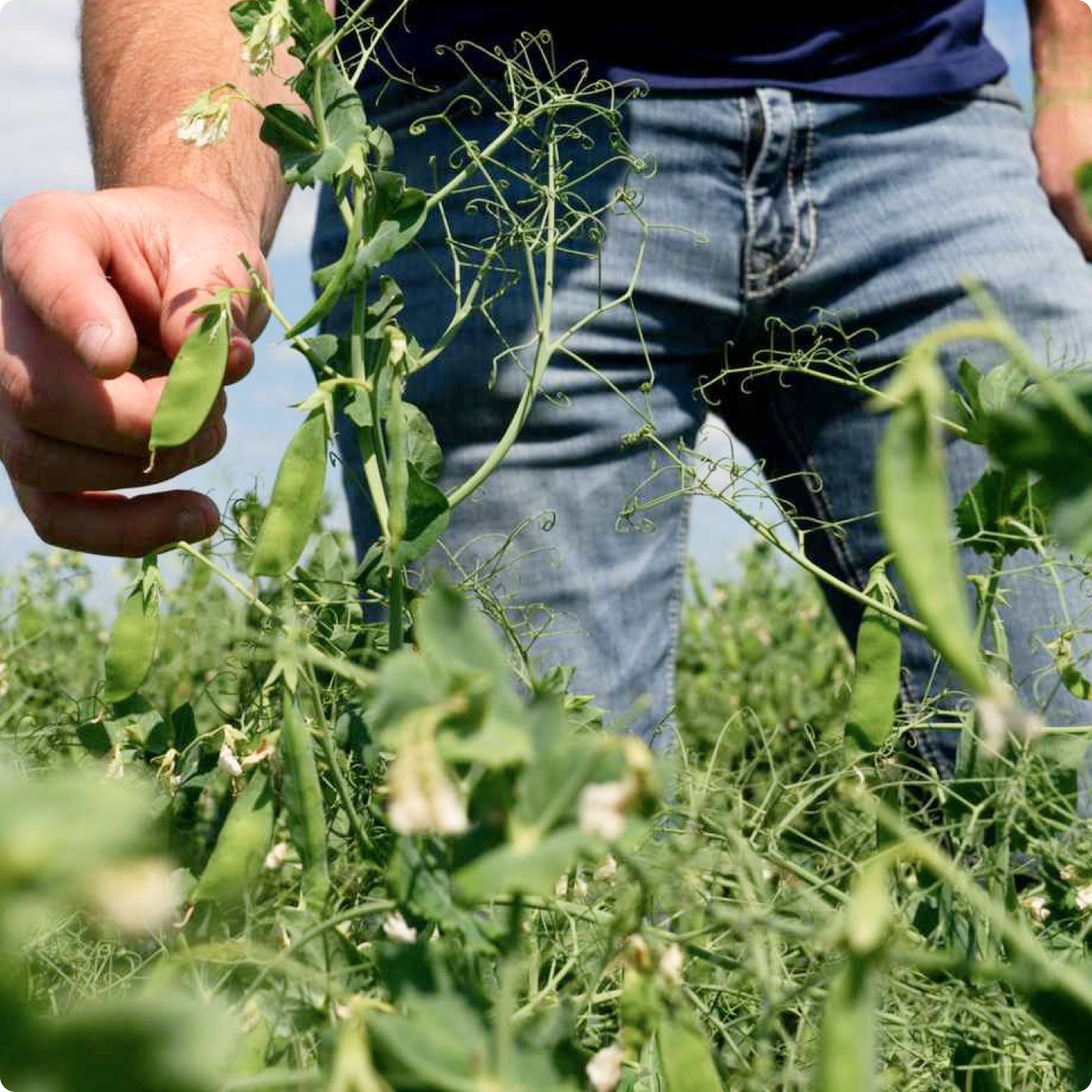
Organic Farming
Not all peas are created the same. Our Pea Protein is made from organic yellow peas grown in organic farms in Saskatchewan, Canada, where prolonged extreme cold with frost depth exceeding 50 inches below the ground preserves key nutrients in the soil.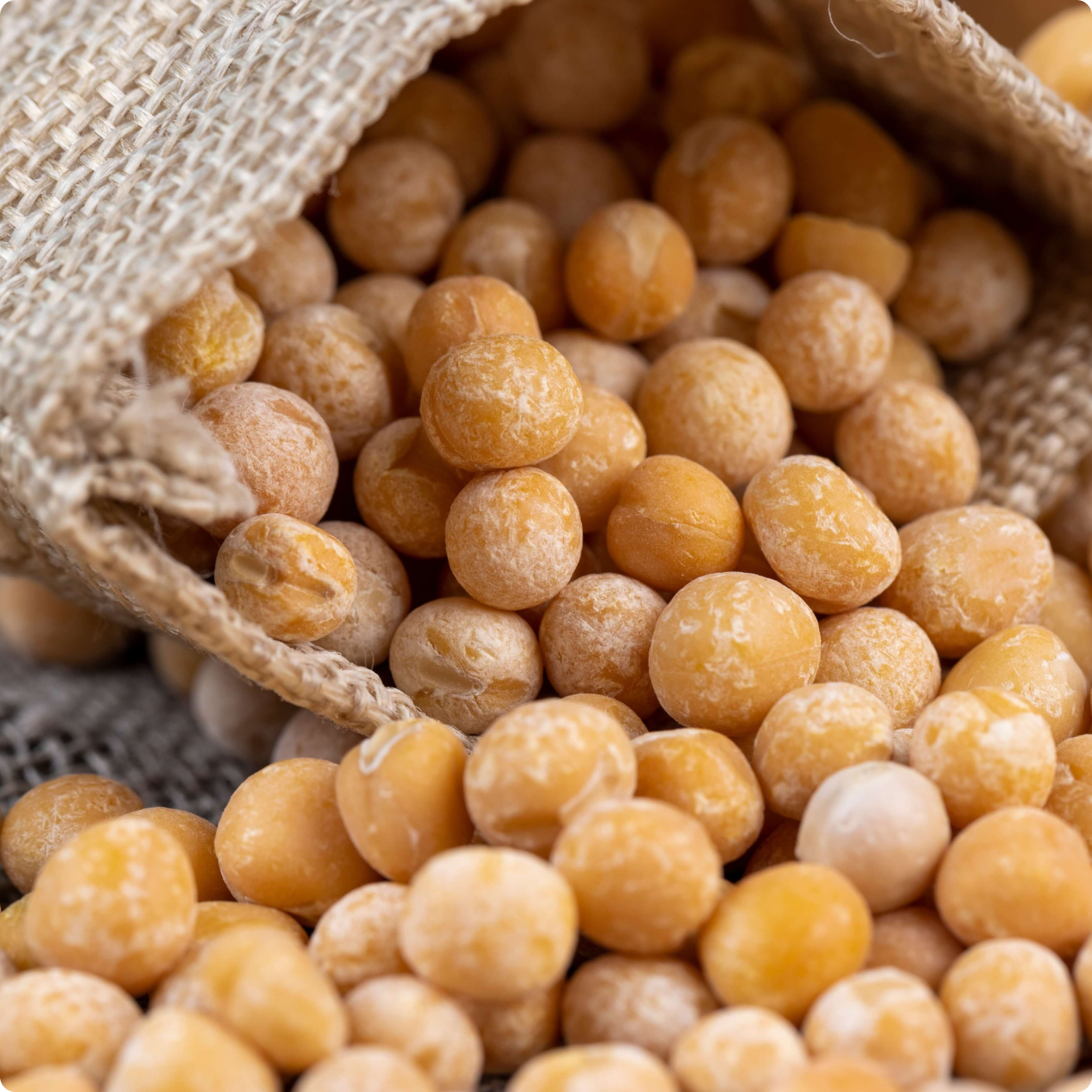
Milling
Dry Yellow Peas undergo a mechanical milling process to split and hull the pea seeds. The loosened hulls from the grain are then removed before the seeds are further milled into a fine powder.Yellow Pea flour contains about 22% protein and 55% starch.
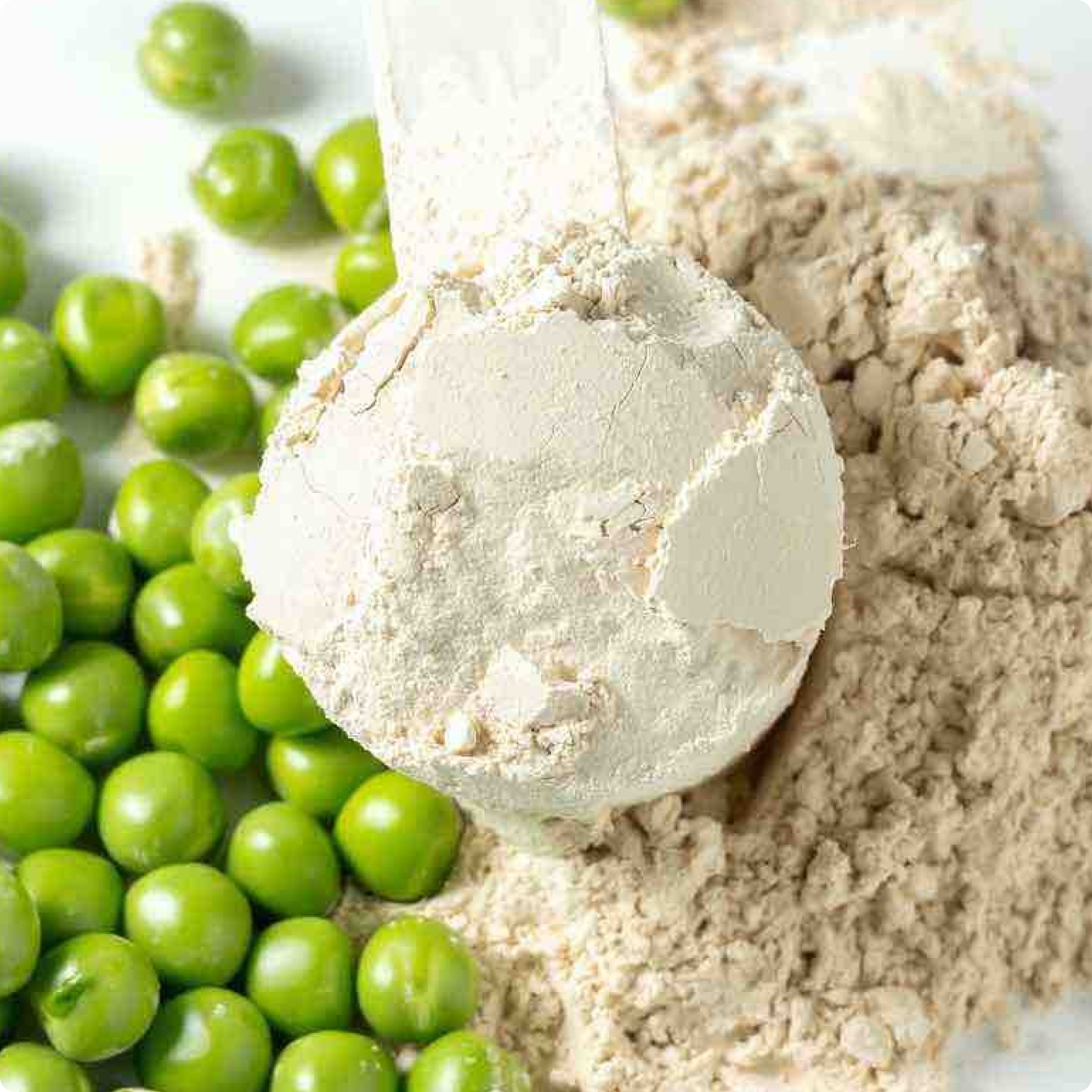
Protein Extraction
Salt solution is most often used to isolate proteins from pea flour. The trade-off for such clean extraction is a hefty load of sodium in the extracted proteins. Folona SoLo Pea Protein undergoes one additional step to gently remove the unwanted sodium via our pH - dependent water - based proprietary technology.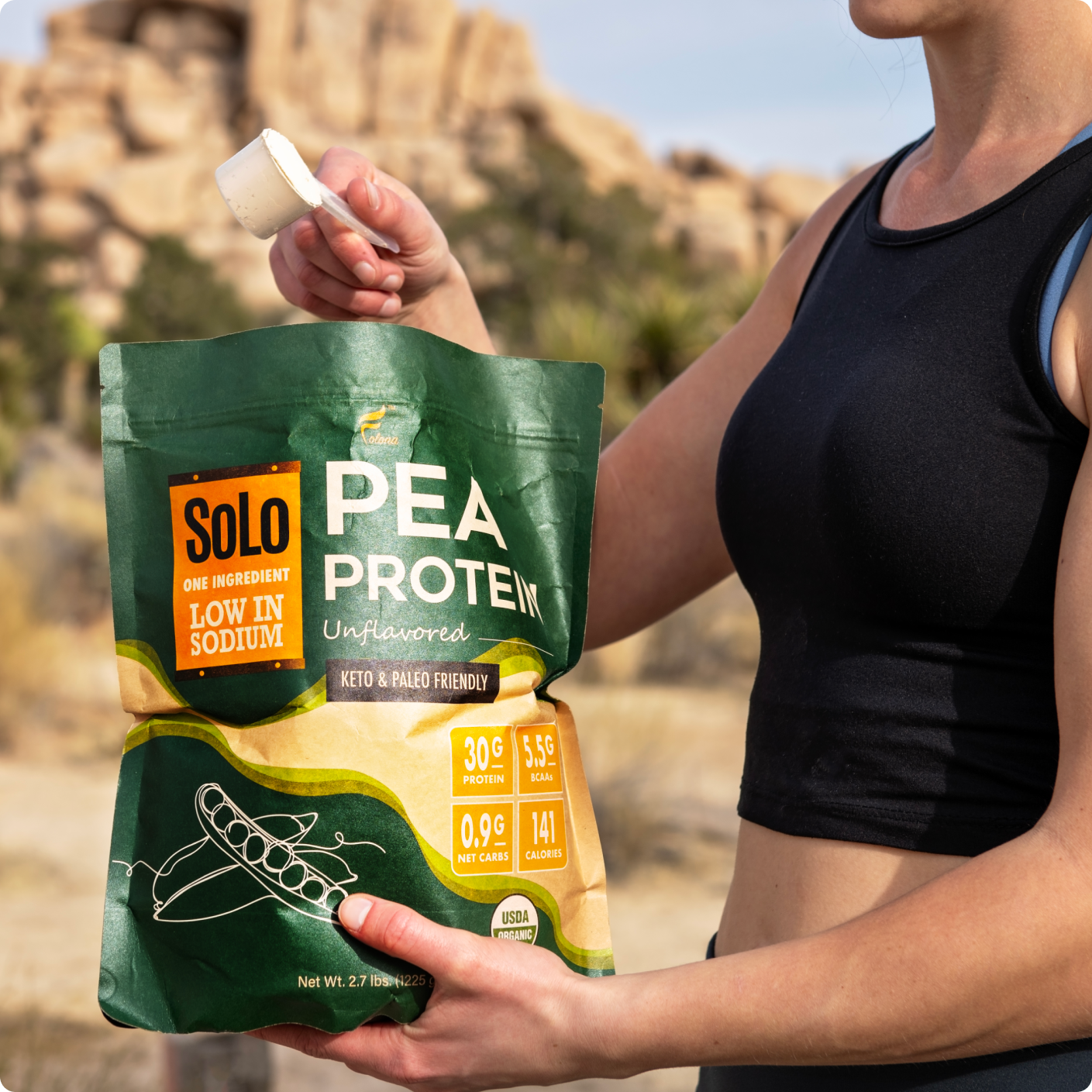
Three-point Test System
Every production of Folona SoLo Pea Protein undergoes a three-point testing system for heavy metals (including lead, arsenic, cadmium, and mercury) and microorganism: the first test is done on the raw peas supplied to us from the farmers, the second test after the peas are processed into protein powder, and the final test of the finished product before they are distributed to the consumers. While the first two tests are conducted by our in-house laboratory, the final test is conducted by an ISO-accredited third-party laboratory.Pre-processing: raw material
Post-Processing: pea protein powder
Post-Production: finished product











